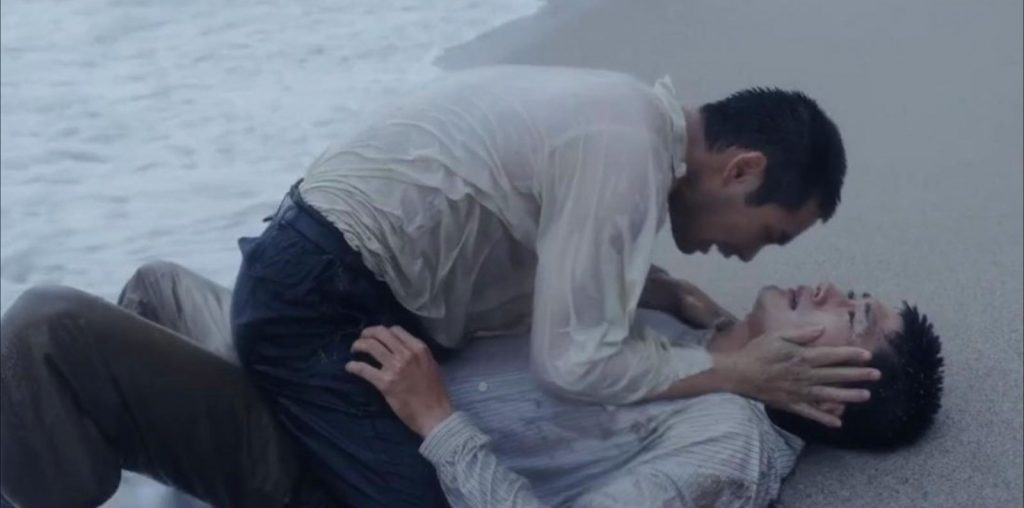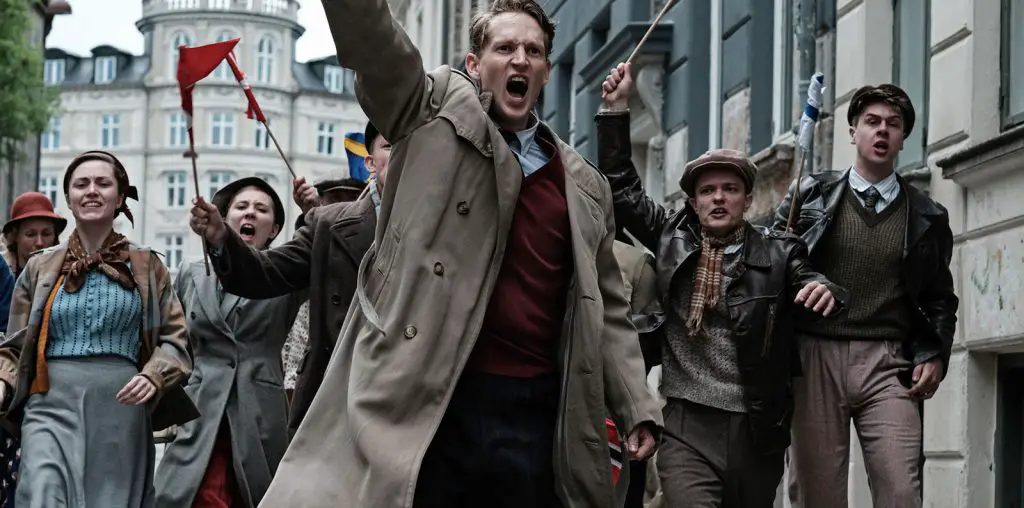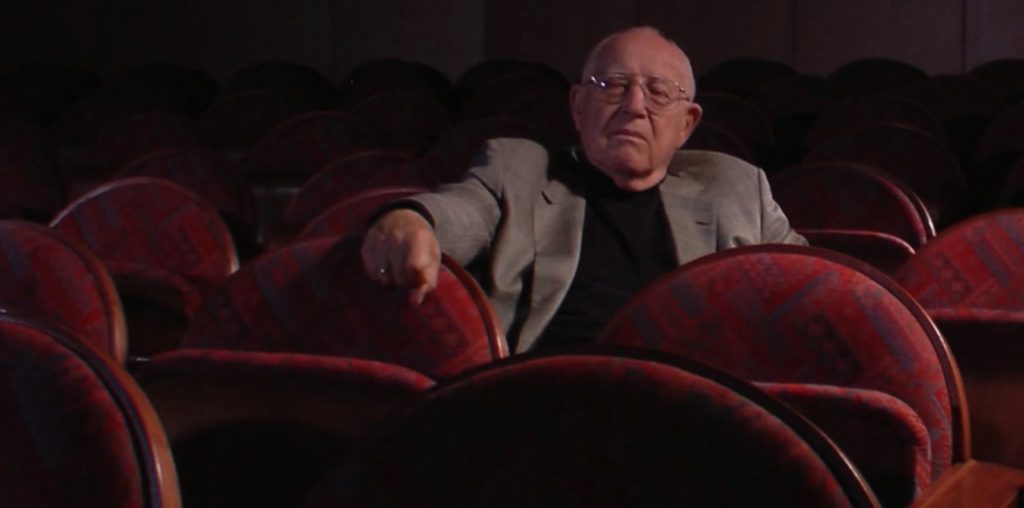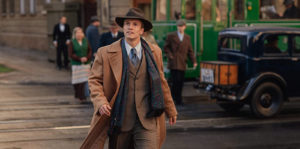
Martha Coolidge’s sprawling period drama I’ll Find You harkens back to the romantic films of yore, ones set against the turbulent background of an impending WWII. Instead of knowingly paying tribute and subverting the trappings of such movies – overt sentimentality, predictability, a heavy sheen of gloss – the feature embraces them and ends up feeling stale as a result. That’s not to say that it’s entirely without merit – there’s just not much here that stands out or hasn’t been done better.
The narrative starts off by clumsily jumping between the present and the past. In the extended pre-war flashbacks, young music student Robert (Sebastian Croft) falls for violin rival Rachel (Ursula Parker). The boy soon realizes that his true talent may lie in his majestic voice, not the violin; when the theory is further validated by renowned opera powerhouse Benno Moser (Stellan Skarsgård), Robert focuses on pursuing his passion.
The present is set in 1939, in Lodz, Poland, against the backdrop of steadily encroaching German troops. Robert (Leo Suter) has matured into a dashing young opera singer who still loves the now-virtuoso violinist Rachel (Adelaide Clemens). Her engagement doesn’t faze him; alas, their dreams of playing at Carnegie Hall are soon demolished. When Rachel is sent to a concentration camp, Robert, with Benno’s help, sets out to get her back.
Lots of things happen in succession: Robert performs for Hitler; he becomes a helping hand while on the run from the Nazis; I’ll Find You even transports us to NYC, where Robert reconnects with old friends. While admirable for its epic sweep, the plot is painfully formulaic, not much helped by stilted dialogue, spoken in various dodgy accents.
“You see, I don’t make friends very easily,” Rachel tells Robert coyly early on. “You could. You’re very noticeable,” he shoots back, the sly rascal. The script is crammed with unintentionally funny and cringe-inducing lines like, “I can’t remember a time I haven’t thought about you,” or, “When you sang, she played with love,” or, perhaps my personal favorite, “She played like a heavenly angel… still a Jew though.”
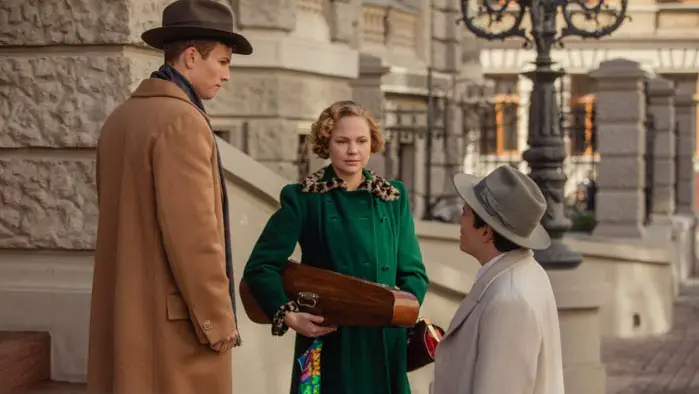
“…Rachel is sent to a concentration camp, Robert…sets out to get her back.”
The music that the characters play and/or sing is impressive, ranging from classical to more contemporary jams. Composer Jan A.P. Kaczmarek’s score, however, thunders over the gooey narrative. The period detail, while nifty, intermittently betrays budgetary constraints with dreary set designs and silly costumes. Some scenes stand out – like a visit to Auschwitz, wherein Robert has to pretend not to recognize Rachel; or the sudden killing of a major character, and Robert barely escaping – but it’s not enough to justify the investment.
Although Croft is in more scenes, Parker leaves a bigger impression as the transformed-by-trauma Rachel. Their romance is halfway believable, oddly more so in the early flashback scenes. Connie Nielsen’s role wants to be more pivotal than it is. She struggles with the accent, looking uncomfortable, to say nothing of her fantastical failure to age as decades pass. Skarsgård fares the best of the bunch, grounding his eccentric character with enough gravitas to outweigh the ridiculousness. Stephen Dorff comes and goes, muttering some lines of dialogue and cashing his paycheck.
There’s a sequence where Robert sings over a campfire, while a misty montage of him and Rachel frolicking about fades in and out of the picture. This scene, like many others, is played straight. Coolidge wears her heart on her sleeve, guiding the proceedings with a heavy hand, which is unexpected considering her considerable cinematic background. She knows how to structure a narrative but seems to purposefully avoid adding any semblance of subtlety or novelty.
The sight of a heavily-made-up Skarsgård on an opera stage is almost worth the price of admission alone. The keyword is “almost.” Its ambition cannot be faulted, but I’ll Find You gets lost in its own nostalgia, ultimately drowning in mush.
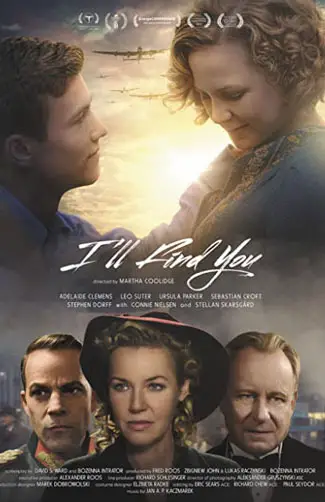
"…its ambition cannot be faulted..."
